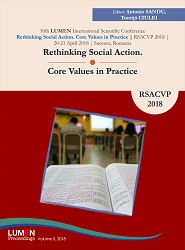Protestant Ethics and the Secularization of Vocation
Protestant Ethics and the Secularization of Vocation
Author(s): Rariţa Mihail
Subject(s): Ethics / Practical Philosophy
Published by: Editura Lumen, Asociatia Lumen
Keywords: Max Weber; Protestant morality; vocation; conduct of life; type of man;
Summary/Abstract: Starting from the way Martin Luther relates to vocation and its wider implications for society, Max Weber will later develop an understanding of the relationship between the teachings of Protestant morality and vocation. Starting from the ethics of a specialized and ascetic profession, the carrier of a normative and responsible commitment in the world, Weber builds a personality model capable of responding to the political and intellectual challenges of his time. In this paper, I argue that the secularization of vocation, as the epiphenomenon of the disenchantment of the world, and its departure from an ethic of specific religious behavior allowed Weber to shape a portrait of the professional man as an ideal type of ethical personality, inspired by the archetypal example of the ascetic Protestant. It will be necessary to understand how vocation, as a way of articulation between ethics and conduct, generates a distinct type of man engaged in the social struggle. We have developed this thesis through an approach to the Weberian vocation concept, especially in terms of ethical and normative foundations, which implies a unique philosophical position, and I have come to the conclusion that this conceptual framework supports the modernity of the Protestant vocation.
Book: Rethinking Social Action. Core Values in Practice
- Page Range: 220-234
- Page Count: 15
- Publication Year: 2018
- Language: English
- Content File-PDF

